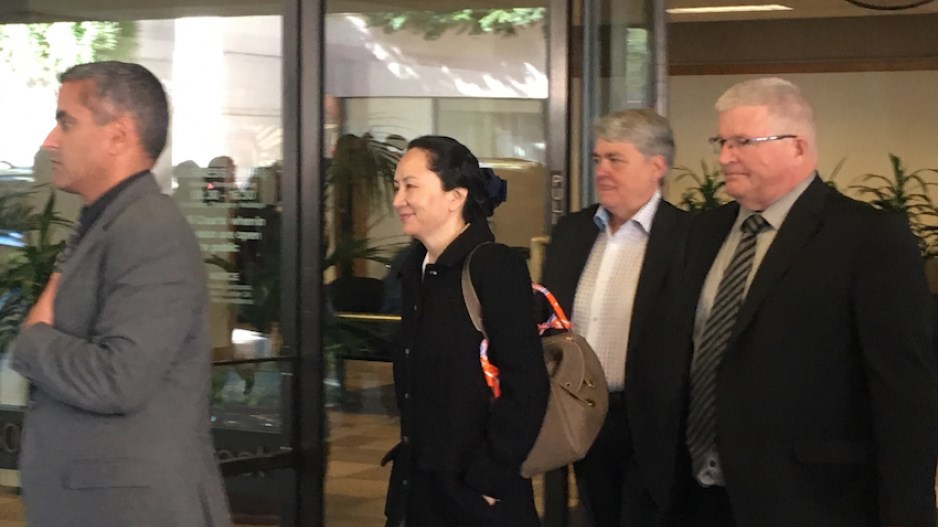The Meng Wanzhou extradition proceedings continued today at a Vancouver courthouse, with Crown lawyers urging the court to consider the context of the situation when determining whether the RCMP and CBSA acted improperly.
Crown counsel Diba Majzub said the accusations made by the Huawei Technologies CFO - that the RCMP plotted with the CBSA to let the border agents exam and gather evidence first upon Meng’s arrival in 2018 before serving the arrest warrant - is not true given the fact that a border entry exam at a port-of-entry comes first by nature.
Majzub further refuted the defence’s position at the RCMP deferral to the CBSA violated the arrest warrant’s condition for immediate arrest. The Crown lawyer said that - given the context that a border exam plays a “crucial role of preserving Canadian interest” at a port-of-entry - the procedure of letting the CBSA go first is not a plot but normal procedure.
“Context matters,” Majzub said. “That’s the point .The immediacy demand isn’t an order for the authority to ignore reasonable context.
“These officers took their responsibilities in this case seriously,” he added. “They did not act in a cavalier manner.”
The Crown further argued that the CBSA was within their right to intercept Meng after she got off the plane, since her arrest warrant triggered a “lookout” order in the CBSA system - requiring the border agents to secure Meng on national security grounds as soon as she arrived in Canada, even if she was only in-transit at the airport and not looking to enter.
Majzub also noted that Meng did plan to enter Canada on the day of the arrest to drop off bags and household items, adding that the RCMP gained no advantage in their case against Meng from the CBSA conducting their exam first.
“We say that is very weak evidence to suggest there was a plot against [Meng],” Majzub concluded.
The Crown also touched on Meng’s defence’s position that the CBSA’s actions when examining Meng - the line of questions, the seizure of the electronic devices and three hours of secondary exams - corresponded with the RCMP’s own mandate of procuring evidence for the U.S. criminal case against the Huawei exec.
Majzub, however, noted several case precedents where the CBSA were looking at the same pieces of evidence as sought by the RCMP but did so for its own purposes of determining a person’s admissibility to Canada.
In these cases, while what’s discovered by the CBSA during the border exam can be passed on to the RCMP, the original intent of going after the said evidence is completely separate - eliminating the possibility of a collusion to illegally secure evidence from Meng.
Majzub also noted that the three-hour secondary border exam that Meng saw was unavoidable, since the CBSA agents had to conduct it anytime a “lookout” order was made.
“There were real admissibility concerns based on criminality and national security grounds,” Majzub said.
The hearings are scheduled to continue for the next four weeks.




